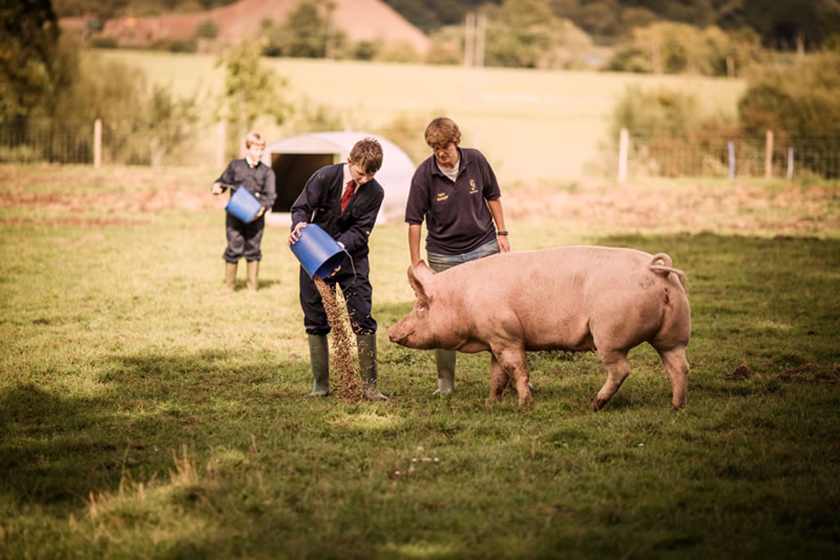
Best Schools with Farms
By
7 years ago
Where to nurture your child's agriculture affection

Q. My 11-year-old son intends to join me on the farm as soon as he is old enough; I’m delighted but want him to get an education first. We’ve agreed he will go away to board – as long as the school also has some sort of farm-related studies. Anywhere you can suggest? Rupert, Lincs

Bredon School
Many modern children seem to struggle with the concept of the food chain. In 2003, researchers from King’s College London found school-age students’ knowledge and understanding of food and farming was poor. Fourteen years later, we still don’t seem to know how to teach farming in school.
Teachers worry about the Government’s plans to drop BTECs in land studies and some other vocational qualifications from performance tables in 2015. ‘How can schools justify investment in school farms when these qualifications no longer count?’ asks one head. The message is clear – land-based studies in schools are not valued. Paul Hillard, Somerset based South West education co-ordinator for Farming & Countryside Education (FACE), a charity supported by the NFU, said, ‘Children deserve to have a wide education. There are some who are academic and some who prefer the more practical side.’
You could look at Abbotsholme School, Staffordshire. Set in 140 acres, the school caters for both future farmers and academics alike. Pupils rise early to be on the farm at 7.45am, assisting with daily animal husbandry (feeding, watering, cleaning out and health checks), before joining the rest of the pupils for chapel and academic lessons.
Bredon School, Tewkesbury, which is known for transforming the prospects of many children with learning difficulties, has a working farm set in 35 acres, with ewes, cattle, pigs, ponies, poultry and other small animals.
The farm at Milton Abbey in Dorset is resident to a variety of animals including horses and ponies, sheep, goats, pigs, chickens and guinea fowl. It is also a hub for students studying Level 3 BTEC Equine and Countryside Management courses, giving them the opportunity for hands-on experience. Sixteen different varieties of crops are sown and grown at the farm, as well as certain fruits and vegetables, particularly helping pupils with the agricultural elements of our Countryside Management courses. The farm’s enterprising element sees its produce sold and proceeds reinvested for the purchasing of feed, livestock and equipment.
If you want a more traditional school, look to Hurst College, West Sussex, which shares a farm project with Plumpton College, covering pigs, chickens and fruit trees. Nearby Lancing College also has its own farm.



